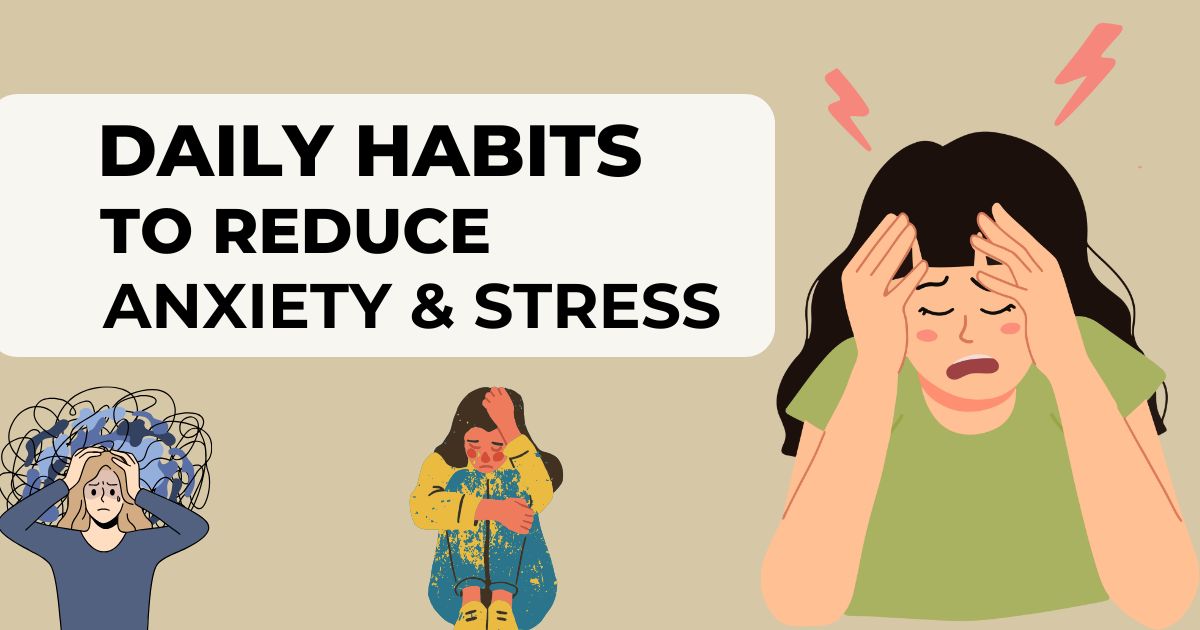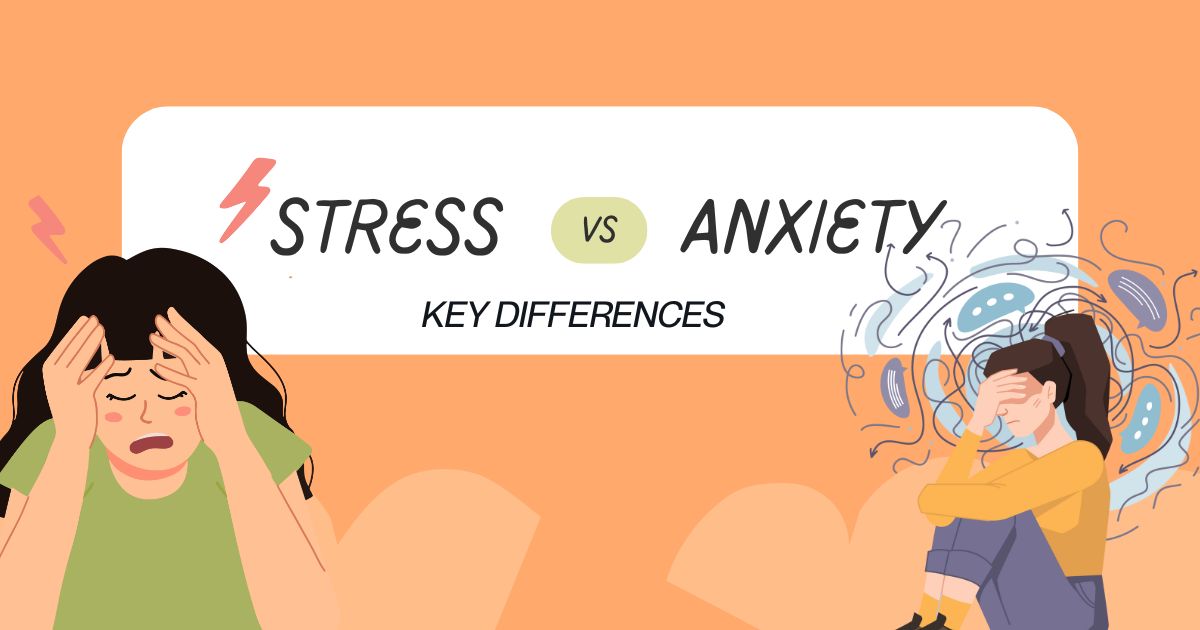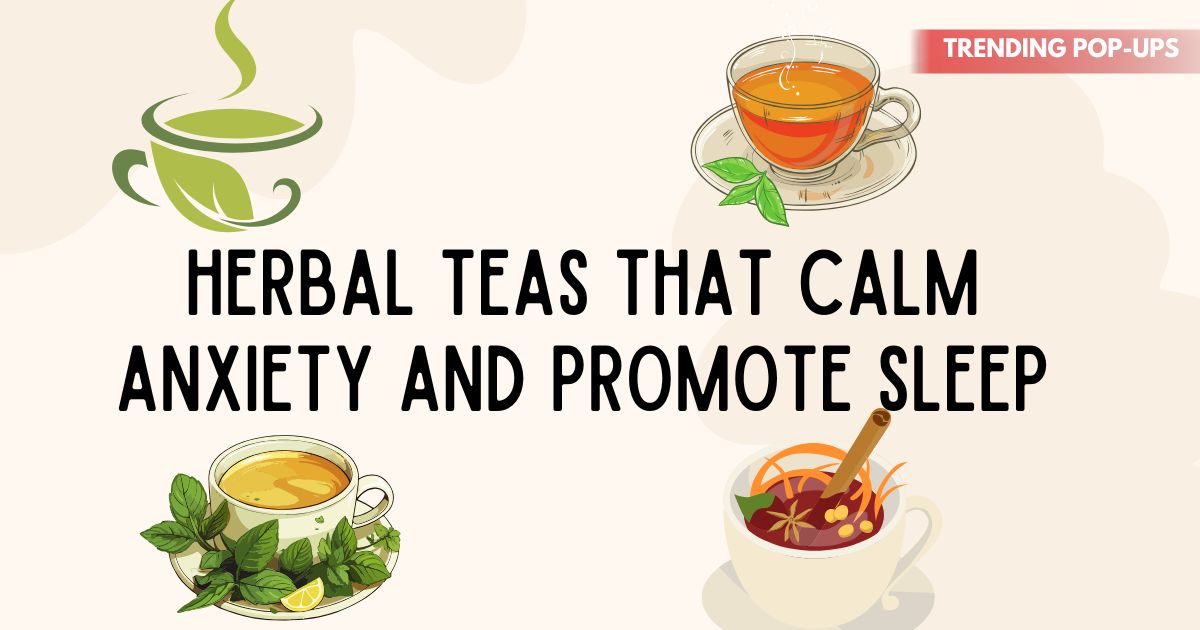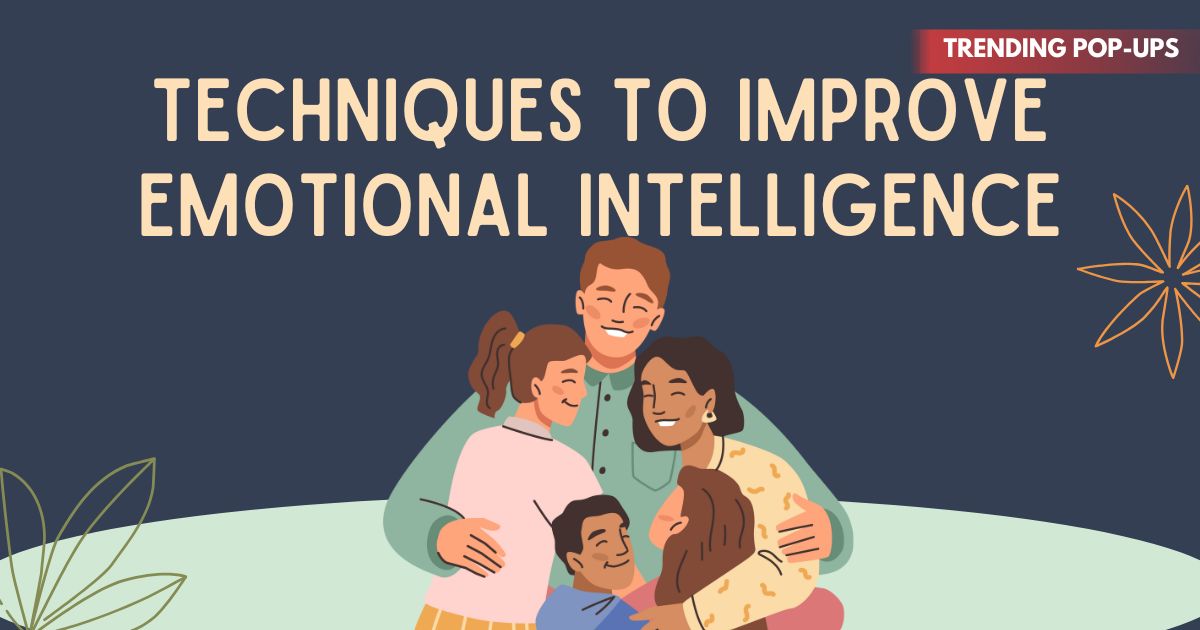In today’s fast-paced world, stress and anxiety have become common challenges affecting millions. While occasional stress is natural, chronic anxiety can impact mental, emotional, and physical health. Fortunately, incorporating simple daily habits can significantly reduce stress and promote calmness.
This article explores practical strategies, backed by research, to help you manage anxiety, boost resilience, and achieve emotional balance.
Understanding Anxiety and Stress
Stress is the body’s natural response to challenges or threats, triggering the “fight-or-flight” response. Anxiety, on the other hand, is a prolonged feeling of worry or fear that may not have an immediate cause.
Unchecked stress and anxiety can lead to:
-
Sleep disturbances
-
Weak immunity
-
Headaches and muscle tension
-
Digestive issues
-
Mood swings and irritability
By incorporating healthy daily habits, you can prevent these effects and maintain emotional well-being.
1. Practice Mindful Meditation
Mindfulness meditation is one of the most effective habits to reduce anxiety. It helps calm the mind, focus on the present, and lower stress hormones.
How to Practice:
-
Find a quiet space and sit comfortably.
-
Close your eyes and focus on your breathing.
-
Observe thoughts without judgment.
-
Start with 5–10 minutes daily, gradually increasing time.
Benefit: Regular meditation reduces cortisol levels and promotes mental clarity.
2. Exercise Regularly
Physical activity releases endorphins, which are natural mood elevators. Exercise also reduces tension, improves sleep, and increases overall energy.
Recommended Exercises:
-
Brisk walking or jogging
-
Yoga or Pilates for mind-body relaxation
-
Strength training or resistance exercises
-
Outdoor activities like cycling or swimming
Aim for at least 30 minutes of activity daily to support mental and physical health.
3. Prioritize Quality Sleep
Poor sleep contributes to higher anxiety levels and reduced emotional resilience.
Sleep Tips:
-
Stick to a consistent bedtime and wake-up time.
-
Avoid caffeine and heavy meals before bed.
-
Limit screen time an hour before sleep.
-
Keep your bedroom dark, cool, and quiet.
A well-rested mind is better equipped to manage stress.
4. Practice Deep Breathing Techniques
Deep breathing activates the parasympathetic nervous system, which calms the body and mind.
Simple Breathing Exercise:
-
Inhale deeply through your nose for 4 counts.
-
Hold your breath for 4 counts.
-
Exhale slowly through your mouth for 6 counts.
-
Repeat for 5–10 minutes daily.
This habit can be done anywhere and is especially helpful during stressful moments.
5. Maintain a Balanced Diet
Nutrition affects brain function and emotional stability. Certain foods can worsen anxiety, while others promote calmness.
Anxiety-Reducing Dietary Habits:
-
Eat more whole foods like fruits, vegetables, and whole grains.
-
Include omega-3 fatty acids from fish, walnuts, and flaxseeds.
-
Limit processed foods, caffeine, and sugar, which can trigger anxiety spikes.
-
Stay hydrated to maintain cognitive function and mood balance.
6. Reduce Caffeine and Alcohol Intake
Excess caffeine can increase heart rate and nervousness, while alcohol disrupts sleep and can worsen anxiety.
Recommendations:
-
Limit coffee or energy drinks to one serving per day.
-
Replace alcoholic beverages with herbal teas or water.
-
Practice moderation rather than complete avoidance, if desired.
7. Engage in Relaxation Activities
Daily relaxation practices help manage tension and improve mood.
Activities to Try:
-
Reading a book or listening to calming music
-
Journaling to express emotions and thoughts
-
Spending time in nature or gardening
-
Creative hobbies like painting, drawing, or playing instruments
Regular engagement in relaxing activities reduces stress hormone levels and enhances mental clarity.
8. Practice Gratitude
Gratitude shifts focus from worries to positive aspects of life, reducing anxiety and enhancing emotional well-being.
Daily Gratitude Habits:
-
Write down 3 things you are grateful for each morning or evening.
-
Reflect on positive experiences during meditation.
-
Express appreciation to friends, family, or colleagues.
Gratitude can rewire your brain for positivity and resilience.
9. Limit Screen Time and Social Media Exposure
Excessive screen time and constant exposure to negative news can amplify stress and anxiety.
Healthy Digital Habits:
-
Take regular breaks from screens during work hours.
-
Limit social media usage to specific times.
-
Avoid checking emails or news right before bed.
Reducing digital clutter can help you feel more grounded and present.
10. Build Strong Social Connections
Social support is a powerful buffer against stress. Spending time with friends, family, or support groups can lower anxiety and promote feelings of belonging.
Tips to Enhance Social Wellness:
-
Schedule regular interactions with loved ones.
-
Join community or hobby groups.
-
Volunteer to foster a sense of purpose and connection.
11. Set Realistic Goals and Manage Time
Overcommitment and unrealistic expectations often lead to stress.
Tips for Time Management:
-
Prioritize tasks using a to-do list.
-
Break large tasks into smaller steps.
-
Delegate responsibilities when possible.
-
Include relaxation breaks in your schedule.
Balanced planning reduces overwhelm and promotes mental calmness.
12. Practice Self-Compassion
Being kind to yourself reduces negative self-talk and anxiety.
Ways to Practice Self-Compassion:
-
Speak to yourself positively as you would to a friend.
-
Avoid harsh judgments for mistakes.
-
Celebrate small achievements daily.
Self-compassion fosters resilience and emotional stability.
Final Thoughts
Incorporating daily habits to reduce anxiety and stress is not about making drastic changes overnight. Instead, consistent small practices—like mindful meditation, regular exercise, proper sleep, balanced nutrition, and social connection—create lasting benefits for mental and physical well-being. Over time, these habits strengthen resilience, promote calmness, and enhance overall quality of life.
Also Read :Headache After Eating: Causes & Solutions
FAQs
1. Can daily exercise really reduce anxiety?
Yes, physical activity releases endorphins, which naturally elevate mood and reduce anxiety symptoms.
2. How long does it take to feel the benefits of meditation?
Some people notice improvement within a few days, but consistent practice over weeks provides the most significant stress reduction.
3. Are certain foods known to increase anxiety?
Yes, processed foods, excessive sugar, caffeine, and alcohol can trigger anxiety and worsen stress levels.
4. How important is sleep for stress management?
Sleep is crucial. Poor sleep increases cortisol and weakens emotional resilience, making stress harder to manage.
5. Can journaling help with anxiety?
Yes, journaling allows for emotional expression, helping reduce worry and providing perspective on challenges.
6. Is social support really effective in reducing stress?
Absolutely. Strong social connections provide emotional support, practical help, and a sense of belonging, all of which reduce anxiety.



